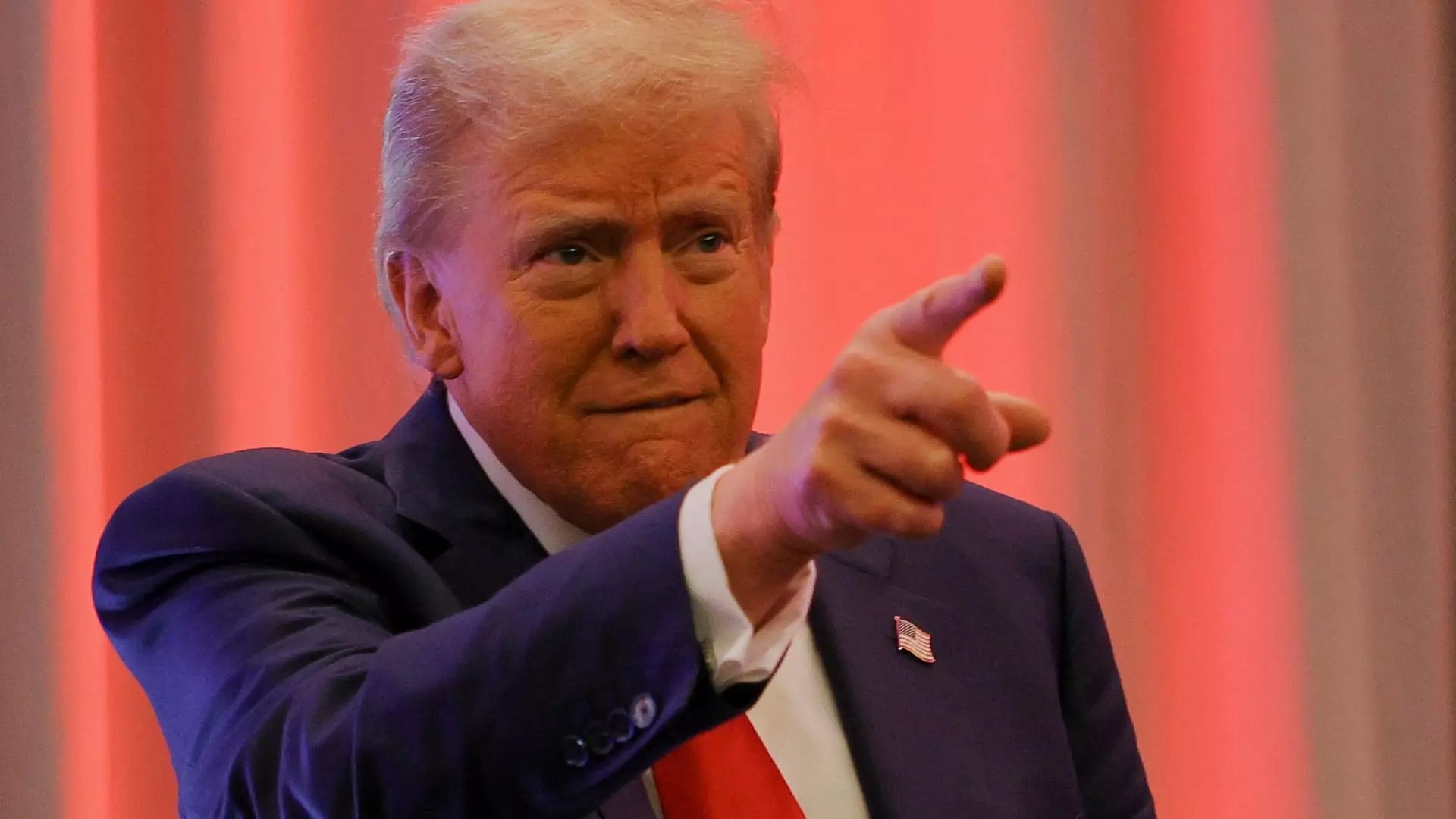The recent surge in small-cap stocks presents an intriguing narrative for investors and financial analysts alike. This week, the iShares Russell 2000 ETF (IWM), which represents small-cap companies, showcased impressive growth, rallying over 4%. This dramatic uptick stands in stark contrast to the more modest gains observed among larger indices such as the S&P 500 and Nasdaq Composite, each rising approximately 1.7%. The Dow Jones Industrial Average, while also buoyed, managed a climb of nearly 2%. The remarkable performance of small-cap stocks indicates a reinvigoration of what many are dubbing the “Trump trade,” a term that encapsulates the investment strategies that flourished during Donald Trump’s previous presidency.
Understanding the Trump Trade
The resurgence of small-cap stocks is deeply intertwined with expectations surrounding a potential second term for Trump. Analysts have posited that Trump’s policies, particularly his staunch support for tariffs and domestic manufacturing, create a favorable environment for smaller companies, which often have a more significant exposure to the U.S. market compared to their larger counterparts. The anticipation of another Trump presidency appears to have reinvigorated investor confidence, as many view this trajectory as advantageous for small-cap stocks that thrive on domestic consumer spending and economic policies that favor local production.
Nevertheless, it is essential to approach this phenomenon with a balanced viewpoint. While the current surge is notable, historical trends suggest that market behavior following political elections can be unpredictable. As investors cheer this latest uptick, they must remain vigilant about the potential volatility that lies ahead.
This week’s notable performance was not an isolated case for small-cap stocks. Bitcoin, the dominant cryptocurrency by market capitalization, also saw substantial gains, crossing the $99,000 threshold and inching toward the elusive $100,000 mark. Cryptocurrency advocates view this rally as a positive indication of the asset class’s potential, largely catalyzed by Trump’s favorable commentary about digital currencies. The anticipated transition in regulatory leadership, marked by the upcoming departure of SEC chairman Gary Gensler, a known skeptic of cryptocurrency, has added further fuel to this trading momentum.
In addition to cryptocurrencies, several stocks associated with Trump’s business ventures have also experienced significant gains. Tesla, for example, jumped nearly 10% in value this week, buoyed by the close relationship between its CEO, Elon Musk, and Trump. Likewise, Trump Media & Technology Group, which operates the Truth Social app, has seen substantial stock appreciation. Such trends suggest a broad optimism about how Trump’s policies might revitalize sectors heavily reliant on U.S. consumer behavior and mitigate foreign market pressures.
In examining the sector-specific reactions, companies like U.S. Steel and Halliburton have experienced considerable rises, with shares climbing nearly 9% and 7.6%, respectively. Investors anticipate that Trump’s proposed tariffs on imports, particularly from countries like China, could create lucrative opportunities for domestic manufacturers such as U.S. Steel. Meanwhile, Halliburton’s gains resonate with historical patterns observed during Trump’s previous presidential term, where energy sector stocks benefited significantly from pro-drilling policies and deregulation.
Jay Woods, chief global strategist at Freedom Capital Markets, has articulated a cautious optimism about the energy sector’s resurgence, suggesting that while there is potential for continued growth, investors should remain wary of future market volatility and possible downturns.
The discussion surrounding the durability of the Trump trade in the months leading up to the Federal Reserve’s meetings suggests a level of confidence among market analysts. Tom Fitzpatrick of R.J. O’Brien & Associates expressed a belief that this bullish sentiment might sustain momentum, particularly in light of prior electoral patterns from 2016 and 2020. Nonetheless, the market remains in a state of flux, and investors must navigate this environment with both enthusiasm and caution.
As we witness small-cap stocks thriving alongside a favorable political narrative, it is crucial for investors to stay informed and adaptable to the changing dynamics of the market. The interplay of political decisions, economic policy, and market reactions will undoubtedly shape the investment landscape in the coming months, making vigilance and strategic planning essential for those looking to capitalize on this intriguing era of market conditions.


Leave a Reply